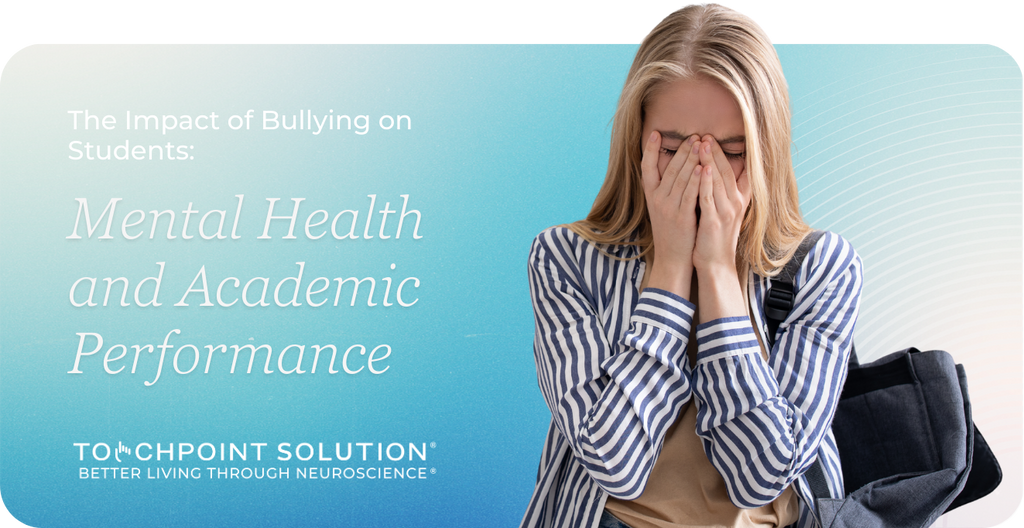The Impact of Bullying on Students: Mental Health and Academic Performance

Bullying isn’t just “kids being kids.” Its impact reaches far beyond the schoolyard, affecting a student’s confidence, relationships, and even their ability to learn. When a child carries the weight of constant stress or fear, focusing in class or finishing homework can feel nearly impossible. Over time, the toll of bullying can chip away at both mental health and academic performance.
When the Impact of Bullying Goes Deeper
Research consistently shows that bullying leaves lasting marks on children and young adults.
- Mental Health Toll: Children who are bullied are at greater risk for anxiety, depression, and even suicidal thoughts (Child & Adolescent Psychiatry and Mental Health, 2021).
- Academic Impact: Students who experience bullying often show lower achievement, disengagement, and reduced motivation in school (APA, 2017).
- ADHD Connection: Research also shows that children with ADHD are more likely to be targets of bullying due to difficulties with focus, impulsivity, and emotional regulation (Dr. Roseann, 2024).
Together, these effects show why bullying prevention is not just about discipline policies, but about supporting students’ whole health—emotional, social, and academic.
Helping Students Heal and Regain Confidence
As mentioned above, bullying leaves a lasting impact. Students often carry stress home with them, replaying the experience in their minds and feeling powerless to move forward. That ongoing stress can disrupt focus, lower confidence, and make school feel like an uphill battle.
Recovery begins with providing children with safe ways to reset and rebuild their confidence emotionally. This might look like:
- Learning to re-center after stressful encounters, so the bullying experience doesn't control the rest of the day.
- Facing fears in small, courageous steps—whether it's raising a hand in class again, sitting with a trusted peer at lunch, or returning to a favorite activity. These moments of courage help rebuild self-worth.
- Building consistency in daily routines provides students with a foundation of stability, even when peer interactions feel unpredictable.
- Using calming tools like TouchPoints helps regulate stress in the body, allowing students to think more clearly, reconnect with their families, and focus on academics.
Research confirms that emotional regulation plays a critical role in how students bounce back—supported by studies showing that improved emotion-regulation correlates with better academic performance and resilience.
Parents featured in TouchPoints™ Case Studies have seen this in everyday life as well. One parent shared that introducing TouchPoints to their children during emotional outbursts helped them calm down and settle when they felt overwhelmed. Their family’s experience reflects what research confirms: giving kids practical ways to regulate stress helps them recover more quickly and stay engaged in learning.
See TouchPoint Case Studies here
Why Emotional Support Matters in Schools
Emotional wounds from bullying don't always surface in obvious ways. Some students withdraw, while others act out in frustration. When left unaddressed, these reactions can strain relationships with peers and teachers alike. Schools that actively promote Healthy Relationships and Healthy Thinking can create safer environments where students feel supported instead of isolated.
Simple strategies like peer mentoring, mindfulness programs, and access to calming aids empower students to cope with stress in constructive ways. These approaches not only address the harm caused by bullying but also promote resilience that benefits every student.
Helping Kids Feel Safe Again
No child should feel alone after experiencing bullying. Parents and teachers play a role in reminding students that they are valued, capable, and safe. Whether it's a kind word, a structured routine, or supportive tools like TouchPoints, small interventions can make a big difference.
For students, recovery isn't just about bouncing back academically—it's about rediscovering confidence, building stronger relationships, and feeling grounded enough to thrive.
A Simple Step Toward Healing
Bullying can leave lasting marks, but with proper support, students can rise above pain and rediscover their sense of safety. Consistent care, grounding strategies, and supportive environments create the foundation for both healing and learning.
TouchPoints are one tool that can help students regulate stress and rebuild focus, making it easier for them to recover emotionally and academically.
Explore how TouchPoints™ can support resilience in students today.
-
Posted in
Academic Performance, Bullying Prevention, Emotional Regulation, stress relief, Student Well-being




